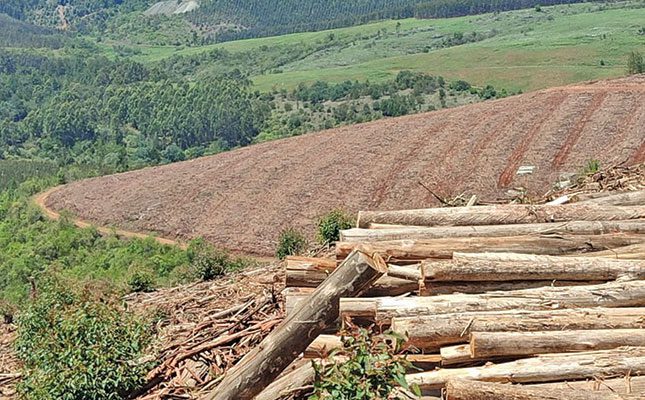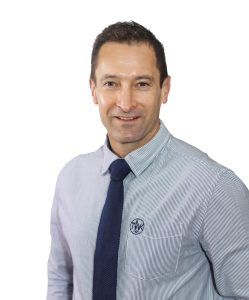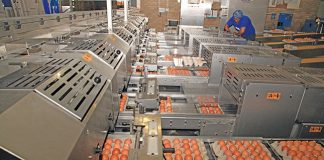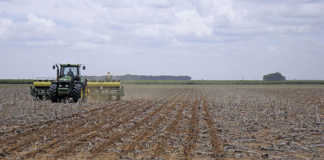
Photo: Lindi Botha
TWK Agri suffered major financial losses in 2010. By the time you joined the company in 2011, a complete shut-down was not excluded. What were the biggest financial challenges the company faced?
Undoubtedly, the foundation and business model of TWK was and is still very good. That was not the problem.
Rather, the financial losses were as a result of controls that were not in place. There were serious cash flow constraints because of the 2010 loss and some assets were not delivering the required income.
READ Tips for running a farm’s finances in tough times
Important stakeholders like financing institutions had lost trust in us.
The profits were historically good, but at that time, nothing seemed promising to return to profitability or achieve sustainable growth. We were also mostly financed by the Land Bank, which had its own challenges.
To turn things around, we had to unemotionally evaluate our core business divisions, many of which were part of the foundation of the company.
We had to ask ourselves if we had the necessary skills, manpower, knowledge, and support from stakeholders to continue with each of the activities.
We had to take a hard look at all employees – even those that had been there for years – and weigh up if we had the right skills that the company needed at that moment and for the future.
We had to seriously question if there was still value in the company to make a success of it going forward.
Under normal circumstances many would have thought it was impossible to turn around. But by taking the approach to see how we could restructure funding, win trust from our financiers and build on the good foundation we already had, we succeeded.
It was clear that the underlying assets were good, the model was good, and we had many income streams. We just needed a more focused approach and to critically evaluate the business without emotion.

As soon as emotion enters decision-making it clouds the way forward and inevitably leads to unwise decisions.
It is also important to set aside egos at this stage as it can lead to the same problems.
Instead of scaling back, the company decided to expand. This is the opposite of what most people would do when facing financial difficulty.
We had to remain relevant in the sector in which we operate. Critical mass is very important in this industry, although meaningful growth must take priority over growth just for the sake of increasing in size.
At that stage, the discussions around consolidation in the agri sector were at a high and therefore TWK was at risk for a take-over. We knew that through hard work and focus, TWK could remain relevant, and play a truly important role in the agriculture sector.
We couldn’t stand still and ignore opportunities that would benefit us for years to come.
In deciding to expand, we looked at aspects that would add long-term income, not just short term.
It was very tempting to look at investments that would bring us quick gains, but we needed to focus on the long-term view.
So the strategy entailed stabilising each business unit and assessing where it would fit into the bigger picture and whether we had what it took to make a success of it.
We realised that our core competencies and knowledge lay in the forestry sector and so we decided to expand our footprint in that regard. We then decided to invest in value-adding in the forestry industry, like sawmills and nurseries.
Today TWK has an expanded interest in forestry, a good knowledge of the market, support from private growers, and a good volume of fibre to support new opportunities in value adding.
What are the financial practices you deem non-negotiable for success?
Taking immediate action and making quick decisions is paramount. Then there is the old cliché of ensuring that we did the right thing at the right time, every time.
We then looked at the cash-flow drivers and addressed the mismatch between the maturity of the assets and how they could be translated into cash.
This meant we had to restructure the balance sheet, have a better understanding of the value drivers and employ strict cash flow management. This was discussed in detail with the banks to show them that we have taken decisions and steps to fix the problems.
Our focused strategy was based on honesty and open communication. This is vital to restore relationships and trust within the company and towards the financiers.
It meant consistent communication, many visits, sharing detailed plans and discussions around management of debt. This meant the financiers had a clear idea of what we were working towards.
I played open cards when issues arose that would hinder these plans, so there were never any nasty surprises for them. Honest and open communication even if the topic is uncomfortable, is non-negotiable.
I can say with confidence that through transparency and a focused approached we achieved the desired outcome.
We had monthly meetings to discuss results, what went wrong, and how it was being rectified. It created trust and a culture in the company of talking about things and not getting emotional.
This provided a platform for problem solving instead of a blame game. The narrative became, ‘Why did it happen and how can we fix it?’ but asked in a way that does not feel like an attack, but rather a prompt to think proactively.
It’s taken years to build up the relationships with the banks again, but they now understand our business and our business model, which is quite a feat for an agricultural company in the banking sector.
Throughout the journey, was there a particular moment that stands out to you as a turning point?
The light at the end of the tunnel became clear when we implemented the syndication financing structure and a clearer path for financing.
Liquidity was our top risk for the business and today that risk is mitigated. This brought a big breakthrough.
There was also a culture change – honesty and openness were felt throughout the whole company, and there was a big swing to taking responsibility for decisions.
When these attitudes filtered down to the very bottom, it was clear that we had turned things around. Every year there have been big strides in the right direction.
In the last 13 years – except for COVID-19 and 2023 – we had year-on-year record profits. This shows that we have been going in the right direction every year.
How do you stay motivated when times are tough?
I am driven by a good challenge, choose to be optimistic and focus on the outcome and not the obstacle. I am supported by a strong accounting team with high ethical values, which is a valuable asset when times get tough.
I surround myself with likeminded people and it is privilege to be part of a strong and dynamic executive team and supported by experienced directors.
I am blessed with a beautiful family and like camping to unwind and enjoy our beautiful country.
How has your experience with TWK Agri shaped or changed your approach to leadership?
I started out as a young man at TWK and I wanted to have a big impact in a short space of time, and leave my mark on the company.
READ Know your leadership style
I quickly realised that to have an impact, you need a very strong team around you. This is something we often hear and read about, but don’t always take to heart.
Initially I did a lot of the work myself because I believed only I could do it. But I realised that the enormity of the task meant that doing it alone was risky, as I could end up missing something important.
So I had to change my leadership style to include more people, build a strong team, and bring in expertise. Over the last three years my team has been expanded to fill the shortcomings I identified in myself, and in the team.
I specifically sought out such individuals and today I have a team that can truly be trusted and relied upon and that I am proud off.
Although we always debate issues, I had the thinking that I must take the lead and make the decisions. Now, there is ownership among people, challenges are discussed openly, and we can get to a decision regardless of whose idea it was.
As you look back on the successful turnaround of the company, what gives you the greatest sense of personal accomplishment?
The change in the culture of the company, the motivated, talented and hardworking staff with a drive for success and taking ownership.
The return to profitability and the listing of TWK Investments on the Cape Town Stock Exchange with a secondary listing on A2X is a great accomplishment.
This brought a lot of benefits like access to alternative sources of capital, greater transparency, bigger exposure in the market, and making TWK accessible to every farmer or the public.
The change in staff attitudes is also very satisfying to see. I get the feeling that people want to be part of the success story and progression.
There is more interest from knowledgeable people to work here because we do things the right way.
Do you see a lot more potential for TWK to expand in the agriculture and forestry sectors?
South Africa has a diverse, fruitful agriculture sector that offers many opportunities. It’s a dynamic sector and we all know it’s an important component of the GDP and food security.
TWK is well-positioned to capitalise on these growth opportunities because we have a good balance sheet, good knowledge, financing, a good business model, and core competencies like the timber division which gives us access to many more opportunities.
The last 10 years have been mostly KwaZulu-Natal and Mpumalanga-focused, and going forward I see us as a big force in agriculture and related sectors that can make a lasting impact in agriculture.
At the heart of our success is not that we don’t make any mistakes anymore – we do, but the difference is in how we handle things to keep going.
Email TWK Agri at [email protected].











